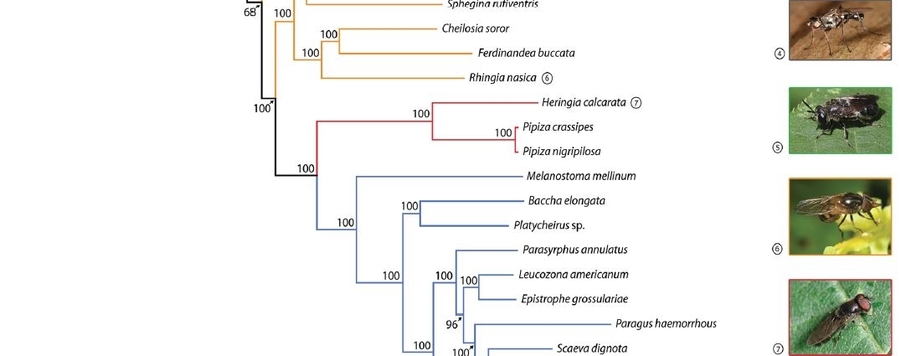
Anchored hybrid enrichment in Syrphidae
Anchored hybrid enrichment is a form of next-generation sequencing that uses oligonucleotide probes to target conserved regions of the genome flanked by less conserved regions in order to acquire data useful for phylogenetic inference from a broad range of taxa. Once a probe kit is developed, anchored hybrid enrichment is superior to traditional PCR-based Sanger sequencing in terms of both the amount of genomic data that can be recovered and effective cost. Due to their incredibly diverse nature, importance as pollinators, and historical instability with regard to subfamilial and tribal classification, Syrphidae (flower flies or hoverflies) are an ideal candidate for anchored hybrid enrichment-based phylogenetics, especially since recent molecular phylogenies of the syrphids using only a few markers have resulted in highly unresolved topologies. Over 6200 syrphids are currently known and uncovering their phylogeny will help us to understand how these species have diversified, providing insight into an array of ecological processes, from the development of adult mimicry, the origin of adult migration, to pollination patterns and the evolution of larval resource utilization.






